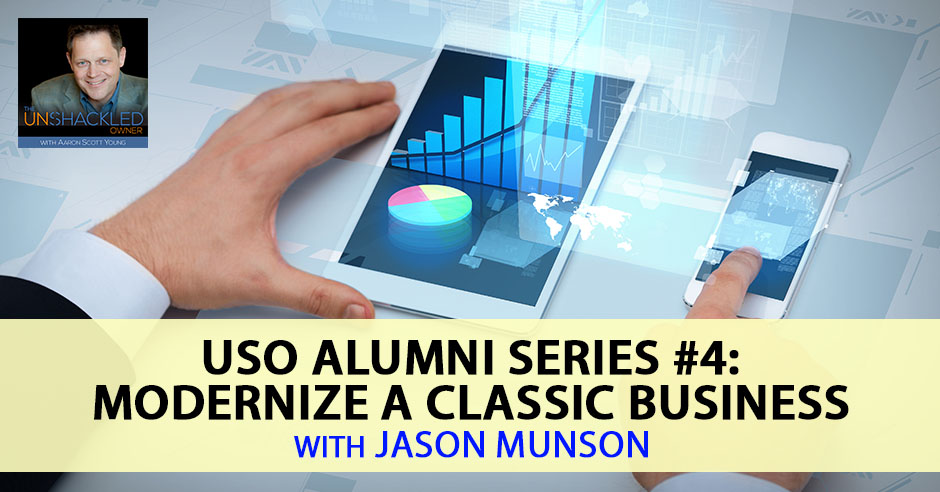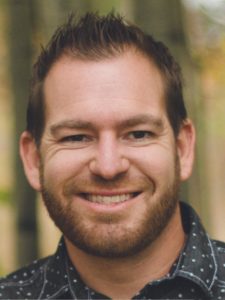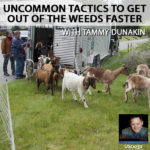
At nineteen years old, Jason Munson was making $10 an hour plus commission repairing hot tubs, pellet stoves, gas fireplaces, and the like. Ten years later, he was at the top of the industry as a repair technician and owned his own company. You could say he was a successful entrepreneur, but it’s not where he wanted to be. Following the crash of 2008, all that he had left to support his family was a little eBay business selling motors and other parts. With desperation and dumb luck, Jason was able to find a way to differentiate himself and was able to do $100,000 in gross sales a night with a 30% margin. Jason tells the story of how he was able to fight through the recession and become successful online by modernizing a classic business. He also shares some of the critical insights he’s learned from selling online for over a decade.
—
Listen To The Episode Here
USO Alumni Series #4: Modernize A Classic Business with Jason Munson
I’m super happy to be with you again. I love these conversations that we have. I love the people that we meet together. I love hearing from you. If you’ve got ideas, comments, questions, please send me an email at Aaron@AaronScottYoung.com. Go ahead and shoot over your message. If you’ve got questions you’d like me to talk about, I’d love to hear from you. If you haven’t yet, I encourage you to go over to iTunes and subscribe to the podcast. You may listen to it from a variety of places. We’re on iHeartRadio, Stitcher, Amazon and you can go to my website, AaronScottYoung.com. What I’d love is if you could go to Apple and subscribe because Apple is still the mothership for podcasts. The more they see people subscribing and commenting, the more it opens up the promotion of the program to other people. My primary goal is to teach you and as many other people as possible some of the golden nuggets that I’ve learned along the way, that my guests have learned, so that you can move faster down your entrepreneurial path. You can move more effectively into guiding your team, building your business and increasing your real estate inventory. Whatever it is you’re doing to create wealth, I want to help make it easier and more effective. That’s why we do this.
—
I want to welcome to the program, Jason Munson. He is a longtime entrepreneur. Jason, welcome. Let’s go ahead and talk about this together. How are you doing? Are you up in Tahoe?
Yes, I’m up in Lake Tahoe.
You might be in any number of places but your home is in Lake Tahoe. Jason has got this great life living up in Tahoe with his family. He’s got a boat out there on the water. Jason, we met at an event. We met out there somewhere maybe in 2013. What do you think?
Maybe even longer than that. It’s been so long I don’t think or even remember.
I’ve observed over the years doing his business stuff but he’s been that classic entrepreneur where he’s had several different targets that he’s gone after. I want to unpack that with you a little bit about how you got started, what your journey’s been, what’s working, where do you want to go next or how you want to change or expand what you’re doing. I would love to know the things you’ve learned, the ups and down and pass on some of that information to the audience. Where did you grow up and when did you start to realize that you had an entrepreneurial bent, a disposition towards this stuff?

Modernize A Business: I had this epiphany. I’m like, “I drive a thousand-dollar car and I dress like I’m homeless every single day. How did I get here?”
I grew up in Northern California, up in the foothill wine country region. It’s where they discovered gold in California. I grew up in a little town very close to there. My dad was an entrepreneur. He was a manufacturer sales rep. He was always going on these trips where he’d be selling products to these retailers. He’d be going into home and garden shows, county fairs and stuff like that selling the product for these stores. He made a commission off of everything sold in his territory. I had that figure as long as I can remember. My dad had that entrepreneurial spirit. When I was twelve years old, I was put on notice rather that if I wanted to buy something, I was going to have to go make the money myself.
This is a classic entrepreneurial story. Your parents say you want that something, those designer jeans, those special tennis shoes, that skateboard, you better figure it out.
I looked around my neighborhood. The thing I had to make money with that I knew how to do is I could mow the grass. All these properties are one-acre properties and you have this big fire danger during the summertime, so people needed their grass cut or their weeds cut. I remember when I was twelve, it was the next street over. I had to push my lawnmower about a quarter mile down around the corner to this lady’s house. Every two weeks I cut her grass and she paid me $10. I took that $10 down to Dan’s Sports Shop. I would spend the $10 every month and I buy the latest Beckett Magazine and I would buy packs of baseball cards. That was my thing. It’s like 1991, 1992. That was the big thing it was baseball cards. I waited on pins and needles every two weeks to be able to go and get my $10 and go buy my stupid baseball cards.
Did you keep your collection?
I still do have my collection.
How much has your $20 a month investment paid off?
The last time I looked, not so much because collecting, at the time at least, baseball cards lost their fame. It was a big thing back in the ‘90s but people don’t collect baseball cards anymore apparently.
You always hear about these baseball card collectors who have hundreds of thousands of dollars in shoe boxes.
I graduated from there. I kept that lawn mowing gig or that yard maintenance gig up through high school. I had an advertisement just in the local newspaper. I was charging anywhere from $12 to $18 an hour to cut grass. That’s where my entrepreneurial spin on it. I got an offer from one of the companies that my dad worked within town. They would train me on how to repair hot tubs. I got also trained on how to repair a pellet stoves, gas fireplaces and things like that. I took this job and I got paid $10 an hour plus commission. I was nineteen and this is where it goes tragically wrong.
At nineteen, it’s already going to go tragically wrong. Tell us.

Modernize A Business: The true secrets to success in business are desperation, dumb luck, and computer accidents.
Ten years later, I was 29 years old. I was at the top of my industry so to speak as a repair technician. I realized I was making as much money as I could possibly make, which was less than $5,000 a month. If I hit $5,000 a month, that was pretty good. I was driving a 1991 Honda Civic red hatchback where all the clear coat had faded off of the paint. I wore these ragged jeans and shirts that had stains on them. I was driving all over Utah around South Lake City and I had this epiphany. I’m like, “How did I get here? I drive a thousand-dollar car and I dressed like I’m homeless every single day. How did I get here?”In 2008, somebody offered me a job for $10 an hour. That was the most amount of money I’d ever been offered. That’s why I’m here right now. I never wanted to do this.
You stayed on the treadmill. You just went along.
I was a successful entrepreneur. I owned my own company and stuff like that but I wasn’t really successful. In the meantime a few years before that, I took that product knowledge that I had and I said, “I wonder if any of the stuff that I’m fixing, if anybody would want to do with themselves.” I took this one motor that I had that was a common part and I put it up on eBay. I started selling maybe six of them a week. I thought that was pretty cool that I had this little side business. I never viewed it as a business. Every year I’d make a few grand off of this thing and I’d had this PayPal account that always had a few thousand dollars in it. It wasn’t until right after I quit the business or quit repairing hot tubs that same year, it was 2008, I try getting into other stuff that crash with the economy. All that I had left was this little eBay business. It was this moment of desperation that I needed to support my family somehow. I took everything that I could get out of this one catalog and I started listing on eBay. Our first month we grossed $15,000. We started this pattern of thriving through the winter and starving through the summer for about the first three years.
Are we in ’09 or ‘10?
This was ‘09. You and I met not too long after that because that was the first year that I attended a Berny Dohrmann event.
I went to my first one on December of 2011.
By that time, we’re pretty decently on our feet at that point. I joke around with this phrase, “The true secrets to success in business is desperation, dumb luck, and pure accidents.” That’s how I started. I was desperate. I needed to make money. I started selling on eBay and I’m like, “I need to find a way to differentiate myself. I’m a stove repair technician. I’ll put my phone number out there and a picture of myself.” Everybody on eBay wants to be anonymous. They don’t want people to talk to them, so I’ll be the exact opposite. It was like this desperation, dumb luck and it accidentally worked. I would never have planned it. That was 2008. In 2009, we’re doing pretty well. We did over $100,000 in gross sales with about a 30% margin. In 2010, we got this big surprise that my wife is pregnant. At the time, we depended on both of our incomes. All of a sudden, I had a very clear timeframe and a very clear set of goals. I had nine months to replace my wife’s income and buy her a new car. I was hell bent. I ended up buying her this INFINITI Sedan, which was nicer than any car we’d ever owned while we’re trying to grow.
Back up, I declared bankruptcy in 2007. Every good entrepreneur has. Off a consumer credit, it was the dumbest way to go at it. We went bankrupt for over $10,000. Our sales were over $6,000 or $7,000 and it’s just a day of sales. It’s like $10,000 is nothing now but we went bankrupt. I had done nothing to rebuild my credit but I needed this car, so I financed it. It was the first step of rebuilding my credit is getting this car financedat18% interest for a $10,000 car. The reason I bring that up is if you fast forward to what I’ve been working with you on and learning with you, in the Unshackled Owner and the Four Disciplines of Execution is you have to have that goal that is X to Y in this timeframe. That’s why I was able to buy my wife a new car and replace her income. When she had that baby, we didn’t have to have her go back to work the next day or the next week. It was such a powerful motivator for me. Time has gone on, we continued to grow the business and whatnot but I started to stagnate because I wasn’t clear on what I was going for.
It was more of like, “Let’s make more money this year than we did last year. If I made more money in November of 2017 than I did in 2016, then that was good.”One thing that with working with classes that you teach at Unshackled Owner, this truly was valuable for me in saying, “What is the ultimate goal here for this business? What is the goal for this business? What do I want it to be like in three years?” I said, “I want to be able to sell it so that after I sell it, wherever I put the money into that I have a net residual income of $10,000 a month or more.” I went to work on that with my employees that I have. I have employees that work for us all over the world, mainly United States. We have employees all over the world that are working either directly for us or we hire another company that works directly for us. I said, “By the end of 2018, we want to top a million dollars in gross sales.” I remember you saying that less than 4% of businesses ever do that.
Most companies never break $1 million. 4%, that’s exactly right.

Modernize A Business: There are so many tasks that have to be done just to keep going from day to day. If we’re not clear as to where exactly we’re going, we’re not getting anywhere.
I said, “Let’s do that. Let’s set that as a goal.”We ended up hiring another virtual assistant and we’re hiring two more. With that goal set of, “Let’s hit a million dollars in sales,” each day I come to work saying, “What can I do now that will most impact my goal?” I remember what Jim Rohn said. He said this back in the ‘80s or ‘90s. He says, “Go make a million dollars, not for the million dollars but for what you will have to become to make a million dollars.” We finished October and did our best October ever, close to probably over $100,000 in sales for just the one month, which we’ve never done before in October. We have this money coming in, but it’s funny that I have this separation from the money. It’s interesting but I’m more interested in achieving this goal of getting to the million dollars in sales. The money is going to do everything that we want it to do and stuff like that. It’s not this great big attachment. I don’t know if you’ve ever felt that way that the goal was more important than the dollars coming in.
My experience is that once you get beyond the money you need to live on, you can go out to dinner, you can go to the nice grocery store if you want to buy organic. Once you can do that, the money doesn’t matter that much anymore other than what you can do with it to play with it. The money becomes more like a scoreboard and less like a survival tool.
For so long, I grew up as it being a survival tool. My parents never had enough money. It’s these other things that transforms over to maybe your personal life. As an entrepreneur, one of the biggest hurdles I had to overcome was my view of money and my feeling of money and what money meant. Years later, I learned that this was the conversation around money. They never said but everything that happened in life spoke to these two things. Money is hard and there’s never enough. That’s what I grew up with learning about money. You could just have gotten paid the biggest check in your life but there was always this underlying fear of, “How long is that going to last? Is that going to be enough to get us through to the next one?” I grew up and consciously made this choice. I have kids that are seven and eight years old. My kids are going to run their own businesses. My kids already have investment funds and they don’t get allowance. They get paid a commission every week and 10% of their commission goes into their investment portfolio, which is attached to my portfolio.
My son who’s seven, I gave him $100 to start with. He puts in $2 to $3 every week. He’s doubled his money in a year. He hasn’t done anything other than I’m just teaching him this is the discipline. He hasn’t made any smart decision. He’s just doing what I’ve told him to do. What he’s learning when I’ve taught them is that money is easy and there’s always more than enough to do what you want to do and to give to others. My oldest is out with some friends and they stopped him for coffee. He’s eight and he’s the dad of one of his friends and he says, “Jacob, can I buy you your coffee and your snack? I’d like to do that for you.” He’s eight, nobody told him to do that. He maxes out at $14 a week for his commission and the stuff he gets to buy with it’s just the stuff I’d be buying for him anyway. He just buys it for himself. That’s part of it. It’s not just about what I’m making, what I’m doing with my company. It is about the legacy of what are we doing with what we have. Who are we teaching? Who we are affecting?
You’re a big promoter of The Unstoppable Foundation, which you introduced me to. The Unstoppable Foundation build these communities or provide resources to these communities in Africa. Those five things that you have to have for a community to be able to work, it’s not just a school. They have to have clean water. They have to have access to basic medical help. Kids can’t go to school if they’re starving. The parents are going to need to send them to the fields to work. It’s like being able to go beyond just what we’re making in our businesses, being able to impact our own families and to be able to impact other people around the world with the resources that we have. It’s much more gratifying than how many products did I sell, what was the bottom line gross numbers and what was our margin. It becomes numbers on a page and it gets boring after awhile.
What’s the takeaway? You’re a younger guy than me. You’ve been doing things, but you had this big realization in Utah in 2008. You’ve had these years of going, “I’m stuck on this conveyor belt.” I look at myself, “I don’t look the way I want to look. I’m not driving the car I want to drive.” You go in there, you fight through the recession, you become successful online. What have you learned that you’re now doing that’s giving you like record months? What are you learning over your journey that is making it possible to continue to grow the way you’re growing?
I think of the metaphor as a ship. There a lot of people have been on a cruise or seen ships and whatnot. You have all this stuff that has to happen on a ship. If you look at a cruise boat or a military aircraft carrier, all the tens of thousands of jobs there are on a boat. How many things have to be kept up with supply chain of food, fuel, people to get on the boat? All this stuff that has to happen, tens of thousands of tasks that have to happen but it makes no difference whatsoever. It’s all just a bunch of busy work, if that ship has no destination and a timeframe for getting there. With our lives and with our businesses, there are so many tasks that have to be done just to keep going from day-to-day like there’s so many things to do on a ship. If I’m not clear as to where exactly I’m going, then I’m not getting anywhere with all this work, I’m not even sure why I’m doing it. Other than, “I need to pay my bills this month.”
It’s not like a big a-ha, I say that and it’s like, “This is nothing profound,” except when you start applying it and focusing on it. When I started focusing on it in my business of saying, “This is my destination and this is what I’m going to do now to work at my destination. At the end of the day, this is how I’m going to measure my progress on this.” I’m going to put that into a week and I’m going to say, “This is how we’re measuring the progress towards our destination this week.”We can do it over the course of a month and you can roll that over into the course of a year, then you’re working on a three-year goal. Most people in life, in business, in their jobs are not clear as to what their finishing line is. Even if they are clear on their finish line, they’re not intentionally focusing on it every day and asking themselves the question, “What am I going to do now that’s going to progress me towards that finish line?”
When we know where we’re going, we have a greater likelihood of getting there. If we’re just winging it, just going through the motions every day, we’re mostly going to end up like you found yourself in Utah. You’re not in a circumstance that you’re excited about, proud or fulfilled by. Once you get clear on, “Here’s what I want to do,” the money at some point becomes just numbers on a page or something to keep score with. It’s the fun of growing and challenging ourselves. It’s a huge part of entrepreneurship. If you’re only in it for the money and you’re not in it for the exhilaration that comes with figuring out a solution to a problem. Answering that need to your customer or finding a way to build a better mouse trap or whatever it is, if you’re not doing that, maybe it’s not in your blood. I meet people who want to go to entrepreneur class at college. If don’t already have it figured out before then and now you’re trying to get a college professor to teach you, you’re missing something in your gut. There should be a fire in you that says, “I see the world differently.” Everything you said, Jason, spoke to that. “I’m struggling here but maybe I’m doing this and maybe I can do more of it,” that’s entrepreneurial thinking. You’re an entrepreneur because you think like that.
One guy that you and I both admire very much is Walt Disney. If you Google Walt Disney on Wikipedia, his title is he’s an entrepreneur. I always love that.

Modernize A Business: Regular association and contact with people that are playing on a higher level than you are is a critical component because it ups your game.
There’s a movie that’s called Walt before Disney. It’s a documentary about his life or a movie about his life. It speaks to the fact that Walt had to acknowledge he was not good at business. He had these great ideas, he had these big visions but he wasn’t good at the day-to-day operational stuff. His brother, Roy, was phenomenal at it and Roy ran the business while Walt ran the imagination factory. He helped invent new technologies, create new thrills and communicated stories in a new and interesting way. Roy was back doing the operational stuff. One of the big reasons I teach The Unshackled Owner class is because most entrepreneurs got into the business because they were great at doing something but not great at running a business. You know that I teach, as quickly as you can just stay in your superpower, in your sweet spot and let other people do the stuff that you’re not good at. Most of us are not good at accounting or information technology or paperwork. It sucks our soul out to have to do it.
Walt Disney was always good about signing autographs, especially with kids. He just loved being around kids. This kid hanging out with him a little bit says, “Mr. Disney, do you make the Mickey Mouse cartoons?”He says, “No.” He says, “Do you make movies?” He says, “I don’t do that.” He says, “I’m a little confused, Mr. Disney, what exactly is it that you do?” He says, “I’m like a bee. I go from place to place and I check to see how things are. I’m like a bee that’s pollinating the flowers.” I liked that. The only thing he did after awhile was just the voice of Mickey Mouse. With the smoking, he had to give that up. He gave it to somebody else.
Walt was a great example of somebody who, like you, like me, like so many people that it’s fun to do the impossible. It’s fun to figure out the tricky stuff and then leave other people to do the operational stuff. Jason, do you have any parting words of guidance or encouragement?
I started hanging with you and your events in 2017, back in May. I had this conversation with my wife. I said, “I’m feeling a need to be connected with some higher-level people.”Back then, I didn’t feel like I had anybody in my association that was lifting me up. I said, “I want to go to this event down in San Diego. It’s part of Aaron Young’s network because I feel like I need to get back in with some other people to lift me up and raise me higher.”That’s what I did and that’s exactly what happened. For everybody who owns a business or who wants to own a business, a critical component is that you need to have a regular association and contact with people that are playing on a higher level than you are and whatever it is that you’re doing so you can get some of that to rub off of you. It just ups your game. I get to talk with you and learn from you pretty regularly. Because you play at higher-level game, it causes me to play a higher-level game. That’s a critical key for anybody in the entrepreneurial space.
I appreciate our relationship. It means a lot to me and I love your stories. I love the nuggets and I love the fact that you can go from being fairly unhappy to quite happy and successful. It doesn’t take a lot of time but as you said, it goes much faster when you figure out what it is you want. Start going to that place instead of just paying your rent for the month. Jason, I’m so grateful you came on. These podcasts are designed to give you access to real people doing real stuff and they’re doing it well. I encourage you to keep coming back, to share the podcast with your friends, to make comments and let us know what stuff is helping and what stuff do you want more of so I can bring you more of these great people that I know, like Jason Munson. Let you hear their stories not in little quick sound bites, not just quick answers to cut and paste questions, but to hear the stories and see the negative and the positive because you get it all here. It’s going through that stuff, going down that path, figuring out the formula that it’s going to make you an Unshackled Owner. With that, I look forward to having you on the next episode.
Links Mentioned:
- Aaron@AaronScottYoung.com
- The Unshackled Owner on iTunes
- The Unshackled Owner on Stitcher
- AaronScottYoung.com
- Jason Munson
- The Unstoppable Foundation
About Jason Munson

Jason Munson lives in Lake Tahoe California and is an expert in selling products on Amazon and serving 10’s of thousands of buyers all over the world. Today we’ll be sharing some of the critical insights he’s learned from selling online for over a decade. He is a husband and father and is currently in the final stages of adopting his nephew.
- AaronScottYoung.com
- The Unshackled Owner Twitter
- The Unshackled Owner Facebook
- Aaron Scott Young LinkedIn



